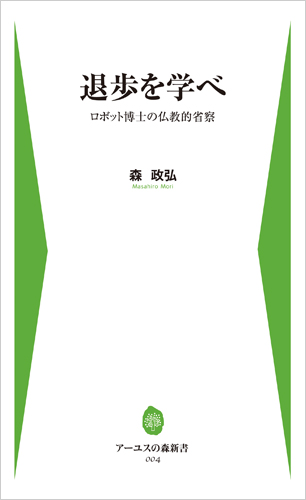KOSEI Publishing Co. Ltd. Bookmark
Learn from Regression: Robotic Doctor's Buddhist Reflections

Information will be available after you log in. Please create an account.
Rights Information
Other Special Conditions
Abstract
The term "Taiho" originates from Zen Buddhism and contrasts with "Shinho." In Zen, "Shinho" refers to an attitude that focuses on external objects, while "Taiho" represents an attitude that focuses on the mind itself.
According to the author, true progress comes not only from "Shinho" but also from "Taiho." They argue that by practicing "Taiho," we can achieve genuine progress. The book explains specific methods for practicing "Taiho" based on Buddhist perspectives, using diagrams and photographs.
In modern-day Japan, there has been an imbalance with an emphasis solely on "Shinho" even before the Great East Japan Earthquake. The author believes that by embracing "Taiho," each individual can spend a fulfilling life, leading to true progress for the entire country.
Author’s Information
Masahiro Mori: Born in 1927 in Mie Prefecture. He graduated from the Electrical Engineering Department of Nagoya University. He holds a doctorate in Engineering. He served as a professor at the University of Tokyo and Tokyo Institute of Technology, and currently serves as an honorary professor at Tokyo Institute of Technology, honorary chairman of the Japan Robot Society, and lecturer at the Central Academic Research Institute. He is the founder of the Robot Contest (Robocon) and the discoverer of the "Uncanny Valley" phenomenon. He has continued to study Buddhism and Zen for about fifty years and has written many Buddhist books. He received the Order of the Purple Ribbon and the Order of the Rising Sun, the Third Class. He has also received the NHK Broadcasting Culture Award and the Robot Utilization Society Contribution Award. His major works include "Bento of Mechanical Parts - The Door to Creation by a Robot Doctor" (Ohmsha), "Living Now 'Ropparamitsu'" (Education Criticism Society), "Introduction to Buddhism for Parents and Children - Technology to Enjoy Patience" (Gentosha Shinsho), and "Learning Regression - Buddhist Reflections of a Robot Doctor" and "New Theory of Buddhism" (both from Kosansha). He co-authored "Robot Engineering and Buddhism - The Limits and Possibilities of Science in the AI Era" (Kosansha).
| Series/Label | --- |
|---|---|
| Released Date | Nov 2011 |
| Price | ¥900 |
| Size | 103mm×182mm |
| Total Page Number | 256 pages |
| Color Page Number | --- |
| ISBN | 9784333025121 |
| Genre | Literature / Novel > Others |
| Visualization experience | NO |




